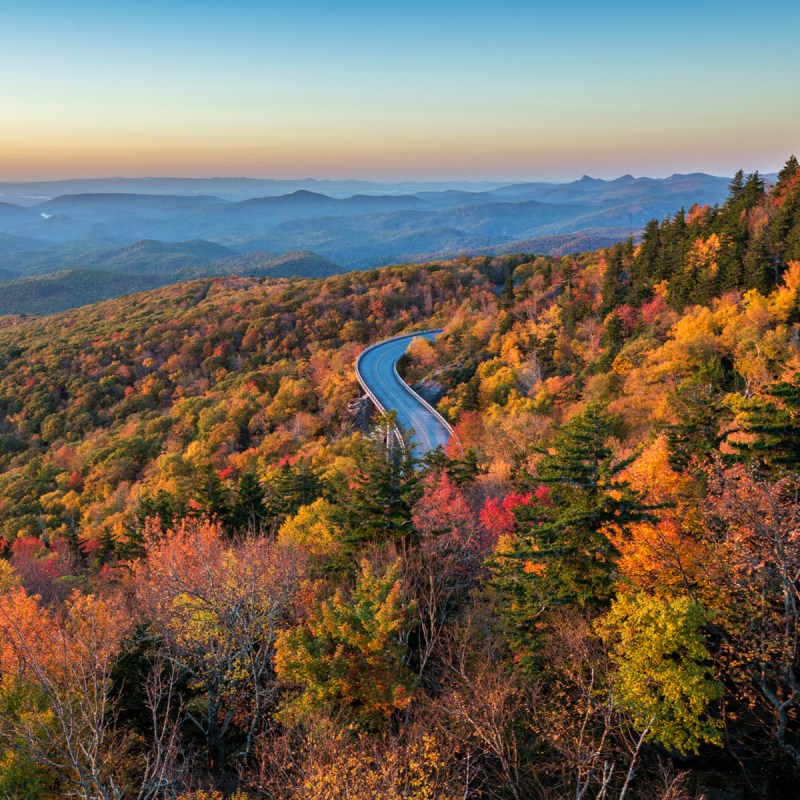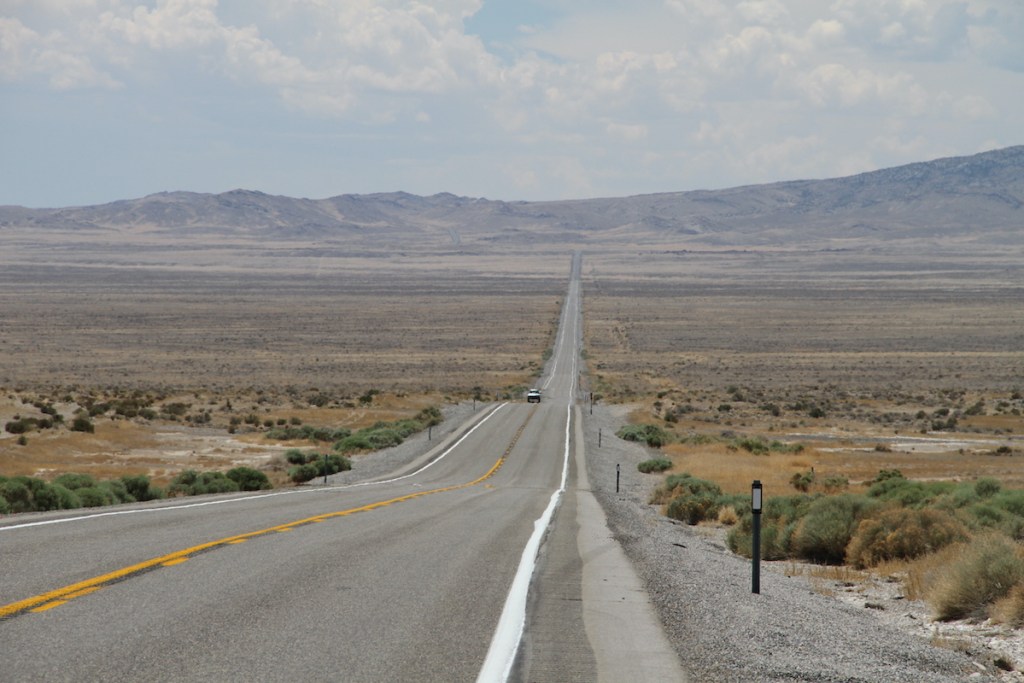
Since retiring several years ago, my wife and I have taken a number of road trips. All have been successful, mostly. We have had fun and, along the way, have learned some valuable lessons to minimize the stresses of driving in a confined space for hours at a time. They may not work for everyone, but they have worked for us and have contributed to our continued happy marriage or, put another way, have helped us avoid unnecessary relationship challenges! Admittedly, we have learned some of these lessons the hard way.
Videos by TravelAwaits

1. Agree On A Destination
And agree on a route, more or less. The purpose of our road trips is to get somewhere. That is the “sine qua non” of our car travels. Now others might have more wanderlust and be more agreeable to “free-form” their trip. And that is fine. But there may come a time when the road diverges and one might want to go one way and another a second. That is potential for disharmony.

2. Obtain Lodging Reservations Ahead Of Time
Start each day in time to make check in, usually 3 to 4 p.m. Too much time on the road in a single day is mentally taxing and physically painful for us. Reservations and limited travel time is our plan now, every time, since a near disaster when we drove from Aspen to San Francisco, nonstop. Leaving around 8 a.m. and we had planned to get a hotel room somewhere in Utah or Nevada for a one-night stay. That didn’t happen because we could not agree on a place to stop. So we drove.
Despite rainy weather in early May we continued to drive, still not agreeing on a hotel. Just east of Austin, Nevada, on Highway 50 (once named by Life Magazine “The Loneliest Road in America”) rain turned to snow, and driving our non-winterized sedan became challenging. No one else was on the road. We were lonely, to say the least! Luckily we crested the summit and snow soon became rain and we continued without incident. It could have been otherwise. But we still couldn’t agree on a hotel. Our bad. So we continued to drive through the rest of Nevada, past Reno, over the Sierras, and eventually arriving in San Francisco at 3 a.m, a full 19 hours after we started. Exhausted and bleary eyed but a bit wiser.
Pre-booked lodging reservations are now mandatory for us. There was a time in our lives when that might have been unnecessary. Not now. Not in retirement!
3. Share Responsibilities
Driving can be tedious and tiring. So there is no need to add further potential aggravation. My wife doesn’t like to drive, so I do most of it. Okay, all of it. But she navigates and gets entertainment on the radio. We take turns picking restaurants along the way. Lodging, as noted, is pre-determined jointly. This division of labor works well for us. Share responsibilities evenly, however, defined, to avoid strife.

4. Adopt The Motto Of The U.S. Coast Guard
“Semper Paratus,” or “Always Prepared,” is an excellent motto for road trippers, too. No one wants or needs the stress of an emergency on the road. Not even spouses! It’s one thing to have trouble at home but another when it happens in an unfamiliar location. So to minimize the possibilities make sure you are always prepared: Ensure your car is appropriately serviced; pack a small reserve of food and water, carry a first aid kit, bring appropriate clothing, ensure you can recharge your phones, and, always, cross your fingers. Also trust your travel partner to do the right thing when needed.
Our trust in each other has helped on any number of trips. And yet, despite all that, we have had a problem: A dashboard warning light flashed on in Oregon in the middle of nowhere. We were on State Highway 97 somewhere between Mt. Hood National Forest and Umatilla National Forest. No towns. No people. No cell service. And very few cars. Luckily, the warning was for low tire pressure. Easy to diagnose by stopping and kicking the tires. All were solid, so we pressed on without event, except for a nagging feeling that the issue might be more than a pressure indicator malfunction. Looking at a flashing warning light is disconcerting. I think our mutual respect for each other’s abilities and judgment in this instance helped minimize the stress of the moment. So always be prepared and travel with people you trust.

5. Take The Slow Road
Or alternatively, stay off the monotonous major interstate freeways as much as possible and take the smaller more scenic roads and highways. They are slower, more relaxing, and much more fun to drive. Although trips on such roads may take longer, they offer a more satisfying experience. Case in point: We once drove from Washington, D.C., to Charleston, South Carolina. The quickest route would have been I-95S to I-26E. Approximately 8 hours. But we took a different route, Skyline Drive through Shenandoah National Park and then a segment of the Blue Ridge Parkway. Both were slow, captivating, and scenic. We felt miserable when we had to join the necessary travails of I-77S and I-26E. Our route took three days. We were elated! Unfortunately, we had not yet earned this lesson prior to another drive from Las Vegas to Denver. I-15N then I-70E. Ugh! Go small! Be happy!
6. Be Flexible
Few enjoy being around someone who is needy or ladened with control issues on a road trip. (Or any time!). It’s a road trip. You’re not pressed for time. Have fun! Reserve a predetermined hotel for the evening and get there on time but enjoy the day’s journey. Pull over for scenic views. Linger at lunch. Take short detours of discovery. Enjoy each other’s company.

7. Take Rest Breaks
Being flexible has several meanings. At our age, inactivity or sitting in the same posture for a prolonged period of time can lead to joint and back pain, as well as muscle stiffness and discomfort. Not good on a road trip. So stop every so often and do some stretching or light exercise. Drink water. That will help lubricate joint and disc spaces and improve muscle function. Potential big benefit for little effort. It’ll also improve your collective moods.

8. Check The Weather Forecasts
On a drive from San Francisco through Big Sur to Cambria on the California Central Coast, we planned a route down the Pacific Coast Highway, the Cabrillo Highway, California 1, or just PCH. It is one of the most storied drives in America. Views of the ocean, beaches, cliffs, and vistas are as dramatic as they are magnificent and dazzling. Notably, we forgot to check one thing: the weather forecast. It was summer, and fog dominates the coast that time of year. As a result, we saw little of the spectacular views. We were disappointed but not crushed because we live in the area and can easily take the drive again. No spousal tension here! But in another similar circumstance, there might’ve been. Forewarned is forearmed. Check the weather forecasts before embarking.

9. Remember That Friends Travel Best
If you and your spouse are friends and respectful of each other’s space, you should be set up for great times on the road. On a road trip, no matter the vehicle’s size, you are in a restricted environment. If disquiet, tension, or quick emotional triggers at home are the norm, they will probably be magnified in a car. You’ll feel bad. Your spouse will feel bad. And the cumulative negative feelings may well harm the trip. If you are friends and partners though, hit the road! Laissez les bon temps rouler.
We learn as we go. Each trip is better planned and executed than the one previous. We are living our road trip lessons and, together, my wife and I thrive!
For more road trip inspiration, see all our road trip content here and read up on
